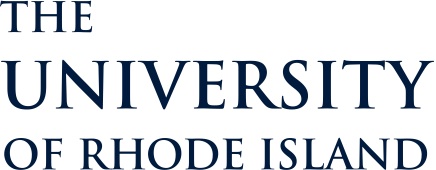For Further Information:Linda A. Acciardo, 401-874-2116
Titanic discoverer Robert Ballard Joins URI faculty Establishes new institute for deep-sea archeology
NARRAGANSETT, R.I. -- April 29, 2002 -- Marine scientist and explorer Robert Ballard, who discovered the resting place of the Titanic and the German battleship Bismarck and who was one of the discoverers of spectacular hydrothermal vents on the ocean floor, has been appointed to the faculty at the University of Rhode Island's internationally acclaimed Graduate School of Oceanography. His appointment takes effect July 1.
In returning to his alma mater, where he earned a Ph.D. in marine geology in 1974, Ballard will establish an institute for deep-sea archeology to continue his exploration and research for archeological and other human cultural remains on the ocean floor. His responsibilities at the Graduate School of Oceanography will also include involvement with graduate and undergraduate courses, advising students, and participating in the University's outreach activities.
"Bob's return to the University of Rhode Island will give our students the unique opportunity to work side-by-side with one of the most important of modern American explorers," said URI President Robert L. Carothers. "Drawing upon the strengths of URI, Bob will be able to enrich and expand his research and create an even greater and lasting legacy."
"I dearly enjoy reaching out to the public to tell them about the exciting things we have discovered in the deep sea," Ballard said. "But I also need an academic home for my research, and URI offers the best place for me to do that."
The new institute will have unique deep-sea technologies and the capability to conduct studies on the ocean floor beyond the near-shore environment, thus leading to the exploration of even the deepest parts of the world's oceans. Its activities will be intimately linked with the graduate-level academic program at URI's renowned Graduate School of Oceanography, including a proposed new program in deep-sea archeology and the existing programs in marine geology, geophysics and ocean engineering. Researchers at the institute will participate in expeditions in association with the Institute for Exploration to explore and study submerged archeological sites around the world, such as the rich archeological landscapes of the Mediterranean and the Black Sea, as well as sites on the U.S. continental shelf.
"There is more history preserved in the deep waters of the world's oceans than in all of the museums in the world combined, and I am eager to work with the scientists and students of URI to discover, explore, and better understand these lost chapters of human history," said Ballard. "Deep water archeology is a new field of research. We hope to find some young minds eager to expand their academic horizons and join this exciting new field."
One of the first projects the institute will participate in is a return trip to the Black Sea in the summer of 2002. Lacking free oxygen at the bottom, the Black Sea contains highly preserved ancient wooden ships, four of which Ballard discovered in 2000. He now believes that the Black Sea may have experienced a great flood of Biblical proportions 7,500 years ago.
To help in his explorations, Ballard is building a new undersea robot called Hercules that will be ready to go to sea in 2003. "We have discovered a number of important ancient shipwrecks in the deep sea, but all we have been able to do is look at them and collect a few surface samples to learn of their age and origin," Ballard explained. "Hercules will be the first remotely operated vehicle ever built that can carry out a deep water excavation to archeological standards. We can't wait to put her in the water."
While Ballard's academic base will be at the Graduate School of Oceanography, his ongoing efforts in exploration and public outreach, including in America's marine sanctuaries, will remain based at the Mystic Aquarium & Institute for Exploration in Mystic, Conn., where they have been since 1997. Ballard envisions initiating a variety of collaborative projects between the new URI institute and the Institute for Exploration, where he remains president.
Throughout his career, Ballard has conducted more than 100 deep-sea expeditions using both manned and unmanned vehicles. He worked for 30 years at the Woods Hole Oceanographic Institution, where he helped develop manned submersibles and remotely operated vehicles for marine research. He went on to develop telecommunications technology to create a "telepresence" for his JASON Project, which allows millions of schoolchildren to accompany him from afar on undersea explorations around the globe every year.
Ballard has 16 honorary degrees and six military awards. He is a commander in the U.S. Naval Reserve. He received the National Geographic Society's Hubbard Medal in 1996 for "extraordinary accomplishments in coaxing secrets from the world's oceans and engaging students in the wonder of science." He has published 18 books, numerous scientific papers, and has been featured in several National Geographic television programs, including the highly acclaimed Secrets of the Titanic.
He is a member of the Presidential Commission on Ocean Policy, explorer-in-residence at the National Geographic Society, chairman and chief scientist of the JASON Foundation for Education, and chairman of Odyssey Corporation.
###
